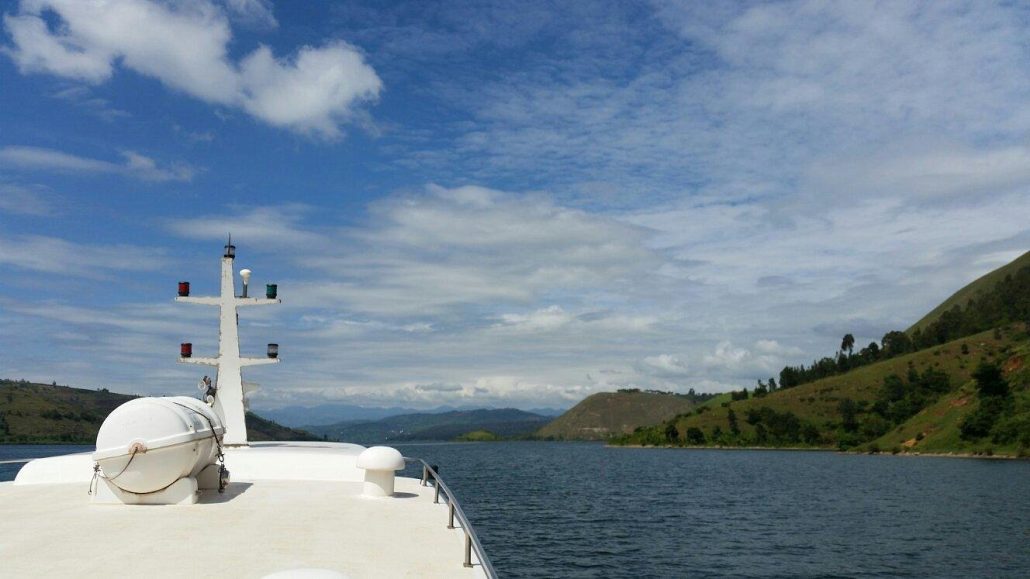Lake Kivu: A Comprehensive Guide to Rwanda’s Breathtaking Freshwater Gem
Lake Kivu, nestled between Rwanda and the Democratic Republic of Congo, is one of Africa’s Great Lakes and a gem of Central Africa. Covering an area of approximately 2,700 square kilometers, Lake Kivu is one of the most scenic freshwater lakes in the world. It offers a tranquil setting with its clear blue waters, dotted islands, and lush hillsides, making it a must-visit destination for those traveling through Rwanda or Eastern Congo. More than just a scenic retreat, Lake Kivu also plays a vital role in the region’s economy and ecology, offering a variety of activities for tourists, from relaxing on its shores to exploring its volcanic origins.

This comprehensive guide explores everything you need to know about Lake Kivu, including its geological significance, best places to visit, activities, safety considerations, and the conservation efforts aimed at preserving this remarkable body of water.
Geographical and Geological Significance
Lake Kivu is the largest lake in Rwanda and lies at an altitude of approximately 1,460 meters above sea level, forming part of the Albertine Rift Valley. This tectonic setting gives it its unique geological features, including being one of the world’s few known “exploding lakes.” The lake is located in a region of volcanic activity, which is responsible for the release of methane and carbon dioxide gases trapped beneath its depths.
These gases, particularly methane, have garnered significant scientific attention. In fact, efforts have been made to harness the methane for energy production, both to reduce the risk of gas explosions and to provide a clean energy source for the region. Lake Kivu is also considered one of Africa’s deepest lakes, with a maximum depth of 480 meters. Its waters drain into the Ruzizi River, which flows south into Lake Tanganyika.
The History of Lake Kivu and Surrounding Regions
Lake Kivu and the surrounding regions have a long and rich history that stretches back to pre-colonial times. The area around the lake has been inhabited by the Bantu-speaking people for centuries, long before European explorers arrived in the 19th century. Over the years, the lake has served as a vital resource for local communities, providing fish, fertile lands, and trade routes between the current territories of Rwanda and the Democratic Republic of Congo.
During the colonial era, Lake Kivu became an area of geopolitical importance. The lake’s shores saw the establishment of European settlements, and the colonial powers sought to exploit its natural resources. Today, the lake remains central to the economies of both Rwanda and the Democratic Republic of Congo, supporting activities like fishing, agriculture, and, more recently, energy generation through methane extraction.
Best Places to Visit Around Lake Kivu
Lake Kivu’s shoreline offers a range of fascinating destinations for travelers, each with its unique charm. Whether you’re interested in relaxation, culture, or adventure, these are the top places to visit around Lake Kivu
Gisenyi (Rubavu)
Gisenyi, now officially called Rubavu, is one of the most popular towns on the Rwandan side of Lake Kivu. Located on the northern shore, Rubavu is a lively town with beautiful sandy beaches, colonial-era architecture, and a laid-back atmosphere. The town’s proximity to the Virunga Mountains and Volcanoes National Park makes it an ideal spot to relax after a gorilla trekking expedition.
Key attractions in Gisenyi:
- Lakefront promenade: Stroll along the lakeside promenade, where you can relax on the beach, enjoy the views, or sip coffee at a lakeside café.
- Watersports: Gisenyi is a hub for watersports like kayaking, paddleboarding, and jet skiing, making it an active destination for adventure lovers.
- Hot Springs: Just outside of town, you can visit natural hot springs and experience their reputed healing properties.
Kibuye (Karongi)
Kibuye, also known as Karongi, is a picturesque town located about halfway along the eastern shore of Lake Kivu. Karongi is known for its tranquility, with lush hillsides and secluded beaches that are perfect for those seeking a quiet retreat. This peaceful town is popular among both local tourists and international visitors looking to relax in nature.
Key attractions in Kibuye:
- Napoleon’s Island: Named after its resemblance to Napoleon’s hat, this island offers hiking trails and the opportunity to see large colonies of fruit bats.
- Genocide Memorial Church: A sobering site, this memorial commemorates the lives lost during the 1994 genocide, offering visitors a chance to reflect on Rwanda’s history.
- Boat Tours: Take a boat tour around the lake’s islands, visiting places like Monkey Island, which is home to vervet monkeys, or Peace Island, known for its serene atmosphere.
Cyangugu (Rusizi)
Cyangugu, now officially called Rusizi, is the southernmost town on Lake Kivu and serves as a gateway to Nyungwe Forest National Park. While Cyangugu is less developed than Gisenyi or Kibuye, it offers visitors a more authentic experience of life on Lake Kivu’s shores. The town is close to the Ruzizi River, where you can explore the borderlands between Rwanda and the Democratic Republic of Congo.
Key attractions in Cyangugu:
- Nyungwe Forest: Combine your visit to Lake Kivu with a trip to Nyungwe Forest National Park, home to primates, including chimpanzees and colobus monkeys.
- Birdwatching: The wetlands around Cyangugu are a haven for birdwatchers, with species such as kingfishers, herons, and African fish eagles commonly seen.
- Border Crossing to Bukavu: If you’re feeling adventurous, you can cross the border into the Democratic Republic of Congo and explore the city of Bukavu, a bustling urban center on the lake’s western shore.
Activities/Things To Do at Lake Kivu
Lake Kivu offers a range of activities for visitors, from adventurous water sports to relaxing beach days. Here are some of the top activities to enjoy while visiting the lake:
-
Boat Trips and Island Hopping
Lake Kivu’s numerous islands make it an ideal location for boat trips and island hopping. Visitors can hire boats to explore the lake’s waters, stopping at various islands along the way. Some of the most popular islands to visit include:
- Napoleon’s Island: A great spot for hiking and bird-watching, with breathtaking views of the lake.
- Peace Island: Known for its peaceful atmosphere, this island is perfect for a quiet picnic or a swim in the lake’s calm waters.
Boat tours can be arranged from most of the towns along the lake’s shores, with options ranging from short trips to full-day excursions.
-
Kayaking and Watersports
For those looking to be more active, Lake Kivu offers plenty of opportunities for kayaking, paddle boarding, and even windsurfing. The calm waters near towns like Gisenyi and Kibuye are perfect for kayaking, with stunning views of the surrounding hills and islands.
Many local hotels and lodges offer equipment rentals, so it’s easy to spend a day out on the water. Jet skiing is another popular activity for adrenaline seekers, especially near Gisenyi, where you can rent jet skis and explore the lake’s coastline at high speed.
-
Swimming
Unlike many other lakes in Africa, Lake Kivu is safe for swimming, as it’s free from hippos and crocodiles, which are common hazards in other African lakes. The lake’s clear, warm waters make it perfect for a refreshing swim, especially around Gisenyi’s beaches or the more secluded coves near Kibuye.
-
Hiking and Biking
The hills and valleys around Lake Kivu offer excellent opportunities for hiking and biking. One of the most popular trails is the Congo Nile Trail, a 227-kilometer route that runs along the lake’s eastern shore, from Gisenyi in the north to Kamembe (near Cyangugu) in the south. The trail can be tackled on foot or by bike and passes through lush forests, coffee plantations, and small villages, offering stunning views of the lake at every turn.
The Congo Nile Trail is a fantastic way to experience the local culture and interact with the communities that live along the lake. It’s a multi-day adventure for those looking to immerse themselves in Rwanda’s natural beauty and rural life.
-
Coffee and Tea Tours
The hills surrounding Lake Kivu are home to some of Rwanda’s finest coffee and tea plantations. Visitors can take guided tours of these plantations, learning about the coffee and tea production process and sampling some of the best brews Rwanda has to offer.
Many of these tours can be arranged through local cooperatives, and they provide insight into the role of coffee and tea in Rwanda’s economy, as well as the sustainable farming practices being used to protect the region’s ecosystems.
Conservation and Environmental Issues
Lake Kivu is not only a tourist destination but also an important ecological zone. However, it faces several environmental challenges, including pollution, deforestation, and the potential risks associated with its methane and carbon dioxide reserves.
Efforts are underway to manage the lake’s methane reserves responsibly. In 2016, the Rwandan government launched the KivuWatt project, which extracts methane from the lake to generate electricity. This project helps reduce the risk of a “limnic eruption” (a rare but potentially catastrophic event where dissolved gases erupt from the lake) while providing much-needed energy to Rwanda’s national grid.
In addition to methane extraction, local conservation efforts focus on sustainable fishing practices, reforestation, and the protection of the lake’s islands, which serve as important habitats for birds and other wildlife. Visitors are encouraged to support eco-friendly tourism activities and to minimize their environmental impact while enjoying the lake.
Is It Safe to Visit Lake Kivu?
Lake Kivu is generally considered safe for tourists. Rwanda has a reputation for being one of the safest countries in Africa, with low crime rates and a stable political environment. However, as with any travel destination, it’s important to follow local guidelines and exercise common sense.
Some safety tips include:
- Follow local advice: If you’re planning to swim or engage in water sports, make sure to follow local safety guidelines and be aware of weather conditions.
- Stay hydrated and wear sunscreen: The high altitude and tropical climate can lead to sunburn and dehydration, so be sure to take necessary precautions.
